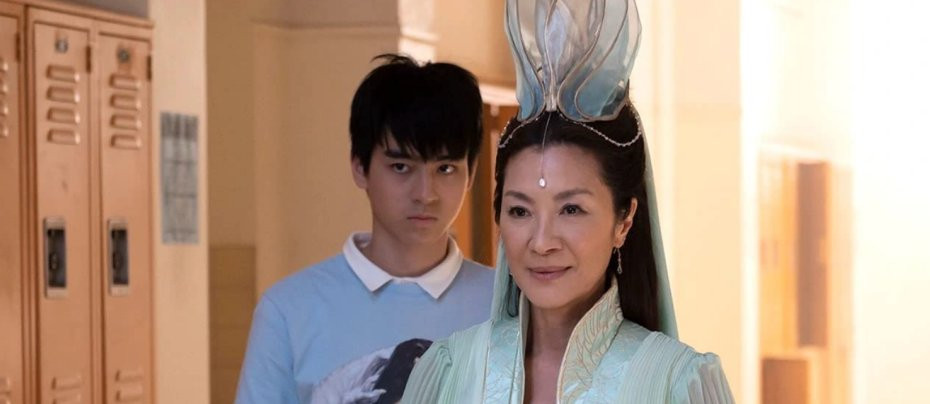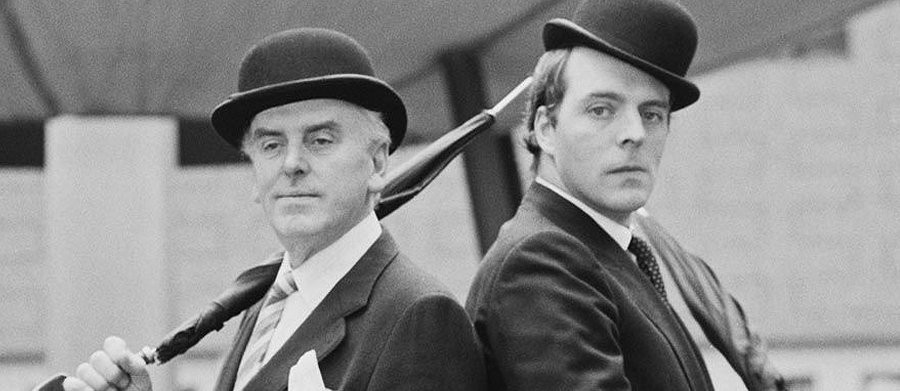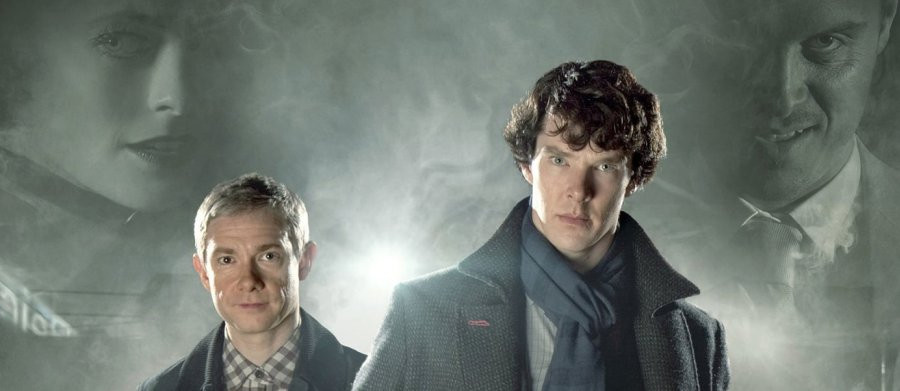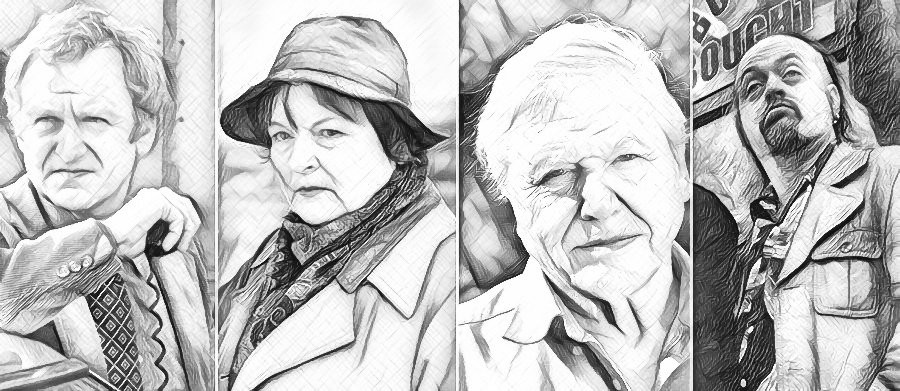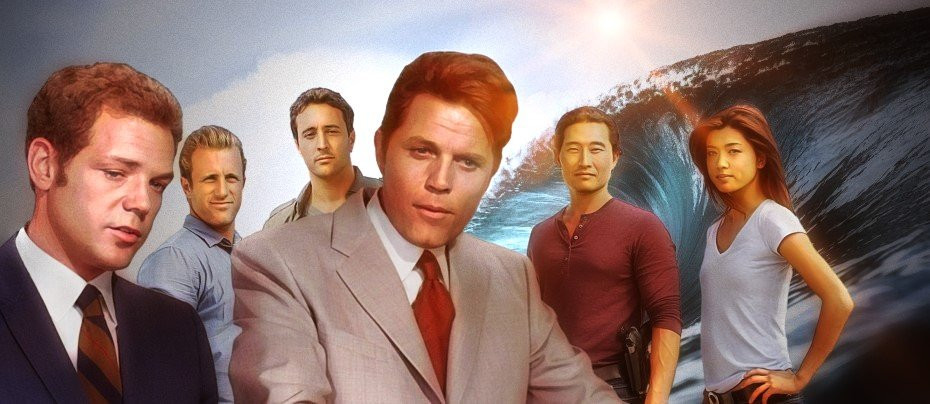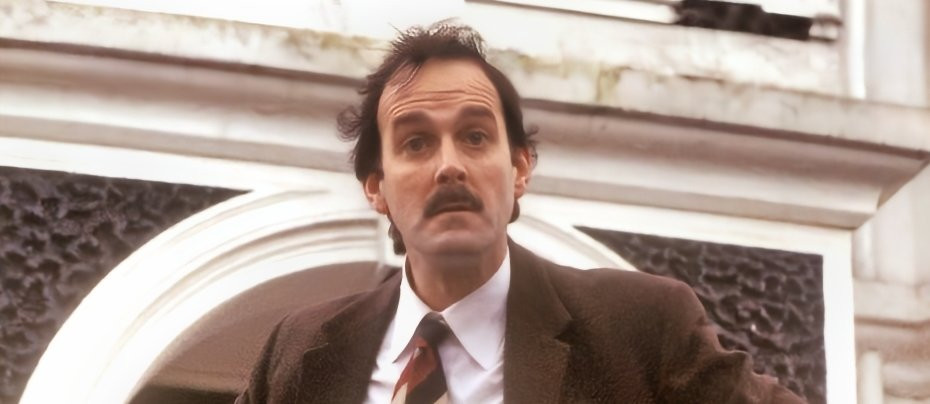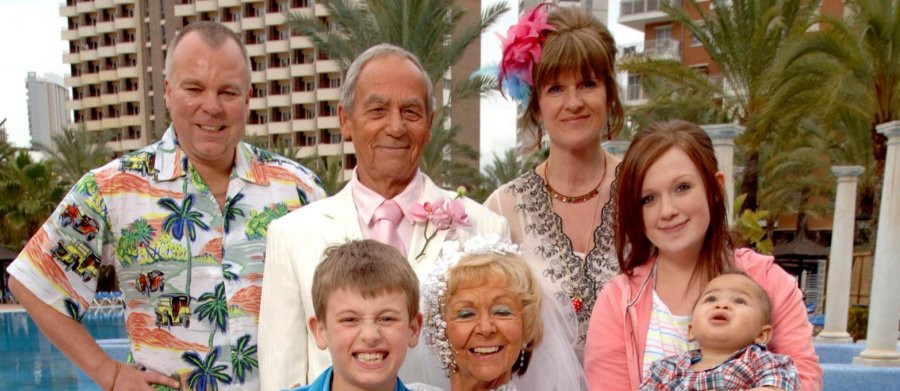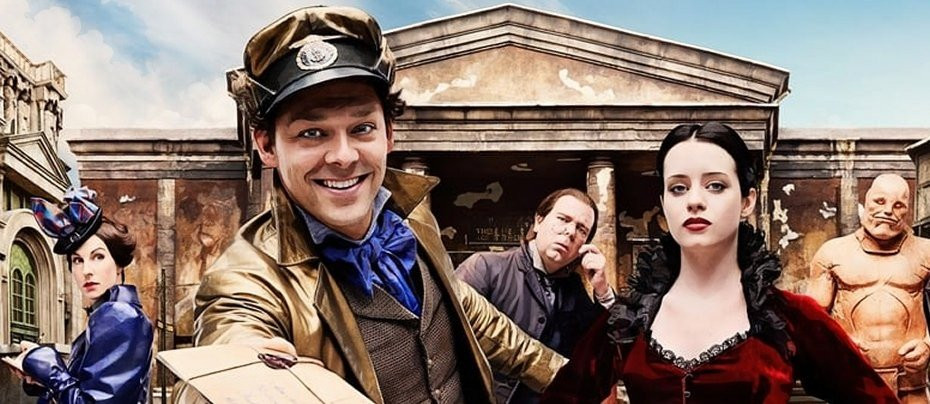
Terry Pratchett's Going Postal
2010 - United KingdomReview by Daniel Tessier
The third and final of The Mob's Discworld adaptations for Sky One, Terry Pratchett's Going Postal has something extra that puts it beyond Hogfather and The Colour of Magic. It's tempting to say that something is Richard Coyle, and he's certainly a big part of it, but there's a lot going on here that makes this production work better than its predecessors.
Going Postal is part of the latter days of the Discworld novel series; the 33rd book, it had been published in 2004, less than six years before the adaptation was broadcast. It was therefore less well known to the general public than the previous choices, with incorrigible conman Moist von Lipwig hardly being a household name. Rincewind would be a recognisable name to most people with even a passing interest in fantasy, while Death... well, if recognition's what you want, then a proto-mediaeval representation of the universal concept of mortality is a pretty good bet.
However, as Pratchett's writing continued to grow in sophistication as he worked, the possibilities of rich new material to adapt grew as well. The benefit of Going Postal was that it focused on a new protagonist, rather than one who'd already accrued years of in-jokes and backstory, but one that already had a sequel in case this adaptation did well. It's also one of the author's more tightly-plotted stories, although still presenting the usual challenges to affectively trim to actually fit into two 90-minute episodes without damaging the structure or atmosphere.
Going Postal was quite extensively “mucked about with” by Pratchett; as he said in a 2010 interview with The Independent: “I was the on set Discworld expert, if you like. In fact they even came perilously close to taking advice from me.” The previous two adaptations had been written and directed by Vadim Jean, who now joined Rod Brown and Ian Sharples as executive producer; Brown seems to have been particularly hands on this time. The scripts for Going Postal were by regular scriptwriting team Richard Kurti and Bev Doyle, who had previously written BBC One TV films Kidnapped and Sherlock Holmes and the Baker Street Irregulars and contributed scripts to series such as Robin Hood and Primeval. Directing this time was Jon Jones (When I'm Sixty-Four, The Diary of Anne Frank, American Odyssey), who gives everything a vibrancy and reality the earlier films often lack. Much of that is also down to some absolutely gorgeous location filming in Budapest, which makes an ideal stand-in for Ankh-Morpork.
While Hogfather saw the heroes fighting to save a fantastical Christmas, and The Colour of Magic was a quest across a fantasy world that was hurtling towards its doom, Going Postal is about long-awaited reopening of the central Post Office. This doesn't sound quite as exciting, but is, in fact, a story riddled with intrigue, murder and conspiracy, dealing with free will, the consequences of one’s actions, and taking the opportunity to be a better person.
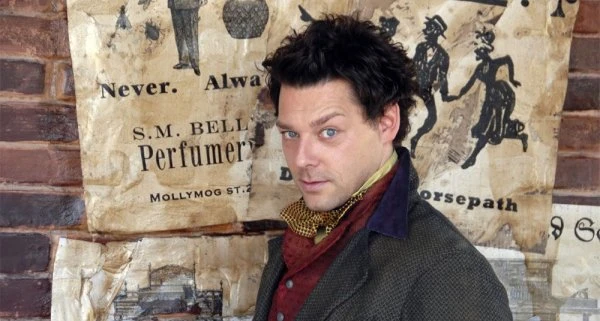
As mentioned above, Richard Coyle (Coupling, Strange, Chilling Adventures of Sabrina) is the star, portraying our antihero Moist von Lipwig. After a career of tricks, swindles and wheezes, Moist's many crimes have finally caught up with him, and he finds himself at the end of a noose. Or rather, that's what happens to Albert Spangler, his current alias. Spangler dies for his crimes, and Moist wakes up in the office of the Patrician of Ankh-Morpork with a very sore throat. Charles Dance (Game of Thrones, Strike Back, Bleak House) portrays the Patrician, Havelock Vetinari, this time round, with by far the character's most significant screen appearance to date. Dance may well be the definitive screen Vetinari, his dark, measured tones perfect for delivering polite requests that aren't really orders and most certainly aren't threats.
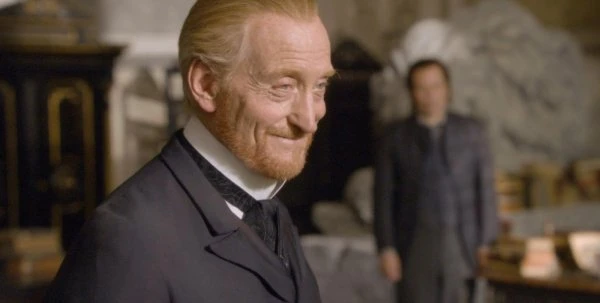
Moist is given two options: take on a new role as Postmaster and bring the dilapidated Ankh-Morpork Post Office back to its former glory; or turn around and walk away. Given that the second option leads to a fatal drop into a dungeon pit, Moist takes the job. Of course, should he fail to revive the great institution, he will find his original execution completed. Vetinari has picked the perfect candidate: a man who will scheme any scheme and take on any character to save his own skin. The Mob team has also picked the perfect candidate: Richard Coyle delivers his entire performance with the wide-eyed, desperate charm of someone who can't quite believe he's still getting away with it – and is still absolutely loving it. Coyle is almost perfect casting as Moist; the only problem is that he's too good looking (in the novel he's almost preternaturally nondescript).
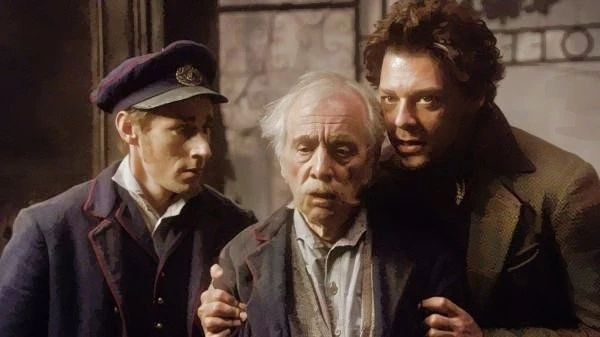
Moist is quickly introduced to the remaining postal team – both of them. Andrew Sachs – always and forever Manuel from Fawlty Towers – plays Tolliver Groat, the extremely elderly Junior Postman (the last Postmaster died before he could promote him). While Sachs gives a spirited performance as Groat, it's Ian Bonar (Hotel Babylon, Dope Girls) who steals all the Post Office scenes as his assistant Stanley. A nervous, quiet sort, Stanley seems to have no interests in life beyond the diligent running of the Post Office – unless you get him on the subject of pins.
Of course, Moist would rather be living life on the run than stuck trying to unblock a decades-old postal backlog, but he is restrained by his own personal jailer: a clay golem named Mr. Pump. Marnix van den Broeke, who had physically played Death in the previous two adaptations, is inside Mr. Pump's costume, while Nicholas Farrell (Bodies, The Count of Monte Cristo, Torchwood: Miracle Day) provides his slow, resolute and incredibly sympathetic voice.
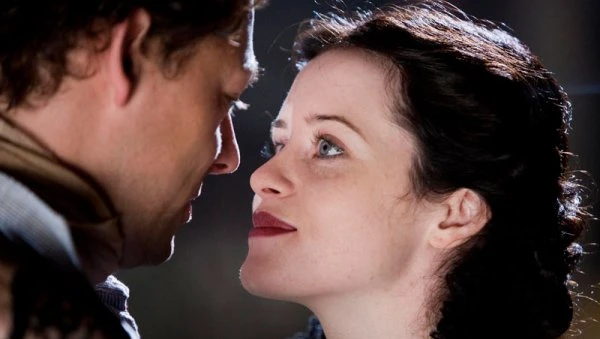
Golems have only recently been recognised as people in Ankh-Morpork, so Moist goes to the local Golem Trust to see if he can find out how such beings are controlled and if there is anyway, he could manipulate one. It's there that he meets the terrifyingly misanthropic Adora Belle Dearheart, and immediately falls for her – quite understandable, as she's played by Claire Foy (The Crown, Little Dorrit, Wolf Hall) with maximum aggression and poise. Miss Dearheart is, in spite of her better judgment, intrigued by Moist, and the two begin a somewhat antagonistic romance.
Moist's conman skills and unwavering charm are exactly what the Post Office needs. He kicks things off by actually delivering a letter, continually announcing new and exciting endeavours – such as mail coaches to exotic locations like Scrote – all the while wearing a golden Postmaster's suit that's almost as dazzling as his best smile. Unfortunately, two terrible things befall him. Firstly, he learns that Miss Dearheart was one of the many unintended indirect victims of one of his scams, plaguing him with a conscience. Worse, he inspires the wrath of Reacher Gilt, the murderously unscrupulous businessman who runs the Clacks – a long-distance mechanised semaphore system, and the Post Office's chief market rival (as well as one of Pratchett's cleverest concepts). Gilt is played by none other than Poirot himself, the great David Suchet, clearly having a ball strutting around as an overdressed, eyepatch-wearing megalomaniac.
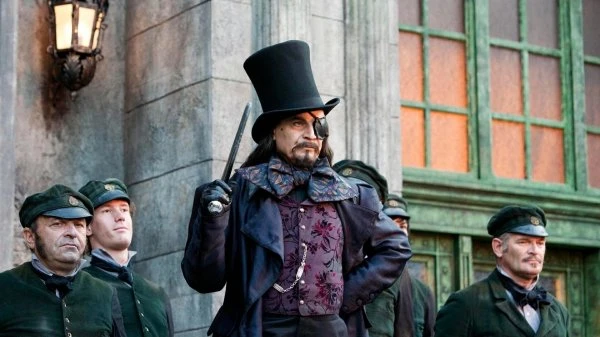
Events become more and more elaborately out of hand as Moist tries anything he can to keep himself and the Post Office alive (now essentially the same thing). He invents postage stamps and realises that he has just found a way to print money – as well, creating a collectible even more exhilarating than pins. He finds himself in with Miss Dearheart's secret weapon, a hacker team that goes by The Smoking Gnu. He appeals to the gods themselves and receives an answer, and finally he even finds a way to beat Gilt in a wager for his very life, without technically cheating.
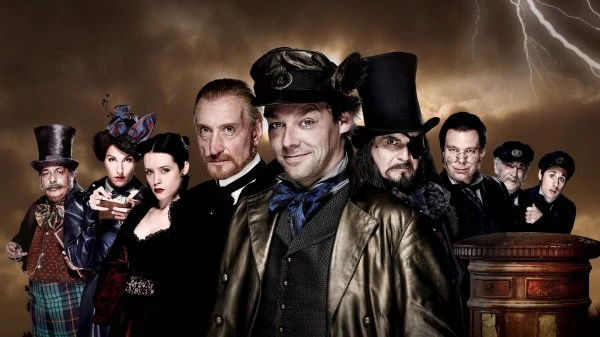
Other actors taking on smaller roles include Tamsin Greig (Green Wing, Black Books, Friday Night Dinner) as unstoppable reporter Sacharissa Cripslock; John Henshaw (Early Doors, The Visit) as noble clacksman Mr. Pony; Steve Pemberton (Inside No. 9, Psychoville) as the Patrician's loyal clerk, Drumknott; and Don Warrington (Death in Paradise, Rising Damp) as a sardonic and classy priest. As had already become traditional, many Discworld fans were invited to appear as extras, able to shuffle around the streets of Ankh in peculiar costume. And, of course, Sir Terry himself made one final appearance as a character in his own story, this time as a postman in the final scene of the film. He delivers the very last line - “That's a bit of an embuggerance!” - his own name for Alzheimer's, with which he was already suffering and would eventually lead to his death in March 2015 – less than five years later, and ten years ago now.
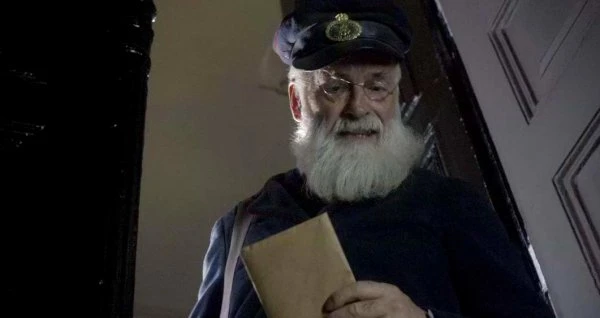
It's comforting, then, that he got to see the one Discworld live action adaptation that really worked. Hogfather did well, but was an unwieldy first attempt, and The Colour of Magic just didn't quite come together. For Going Postal, it all did: a spectacular lead performance by Richard Coyle; his brilliant chemistry with Claire Foy; remarkable villain (and not-really-a-villain-but-don't-ever-upset-him) performances by David Suchet and Charles Dance; a production that combined the best in visual design, location work, music and a script that kept as close to the book as could feasibly work.
Seen this show? How do you rate it?
Seen this show? How do you rate it?
Published on March 23rd, 2025. Written by Daniel Tessier for Television Heaven.



